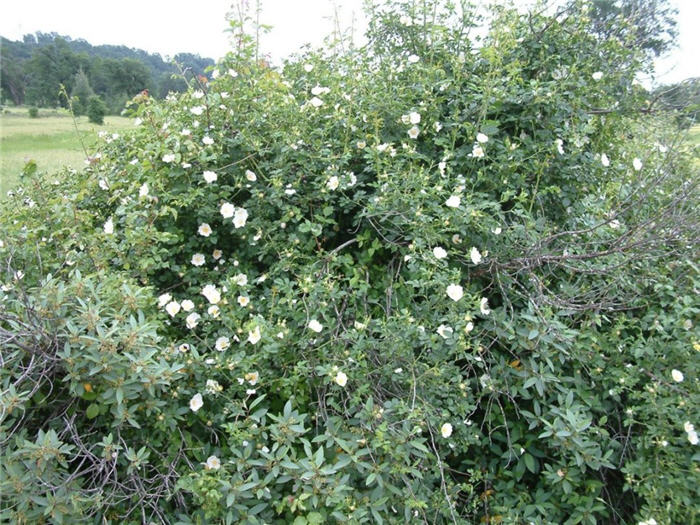| Botanical Name: Rosa woodsii | |
| Common Name: Woods Rose |

-
Anatomy
-
Culture
-
Design
Plant Type
Shrub, Herb
Height Range
3-6'
Flower Color
Pink
Flower Season
Summer
Leaf Color
Green
Bark Color
Brown
Fruit Color
Red
Fruit Season
Winter, Fall, Persistent
Sun
Full, Half
Water
Low
Growth Rate
Moderate
Soil Type
Clay, Loam
Soil Condition
Average, Rich, Well-drained
Soil pH
Acid, Neutral, Basic
Adverse Factors
Invasive, Thorns/Spines
Design Styles
Mediterranean, Ranch
Accenting Features
Fragrance, Showy Flowers
Seasonal Interest
Spring, Summer
Location Uses
Background, Shrub Border, Walls / Fences
Special Uses
Erosion Control, Hedge, Mass Planting, Naturalizing
Attracts Wildlife
Birds, Hummingbirds
Information by: Stephanie Duer
Photographer: Mountain States Nursery
Photographer: Mountain States Nursery
-
Description
-
Notes
Woods rose is a Utah native, growing between 6,000 and 11,000 feet at the forest's edge. It has an irregular habit, sort of moundish and upright all at once, and grows from 4 to 6 feet tall and 3 to 5 feet wide, though it may (probably!) sucker and take up much more room. It has single, simple pink flowers in June, followed by hips that ripen to a dark red in in the fall and persisting into winter; they are a little dry but the birds enjoy them. The foliage is a dark green and heavily textured, and turns to yellow in the fall. Useful in naturally-styled landscapes or for restoration and habitat. there is a stand planted at the Greater Avenues Conservation Garden.
Grow in well drained soil, loamy soil, in full sun to part shade. Though a native, it is not particularly drought tolerant, though infrequent watering will help to control the suckering. It can be pruned to control size and suckering, but it is wickedly dense with thorns; I'm inclined to just leave it be.